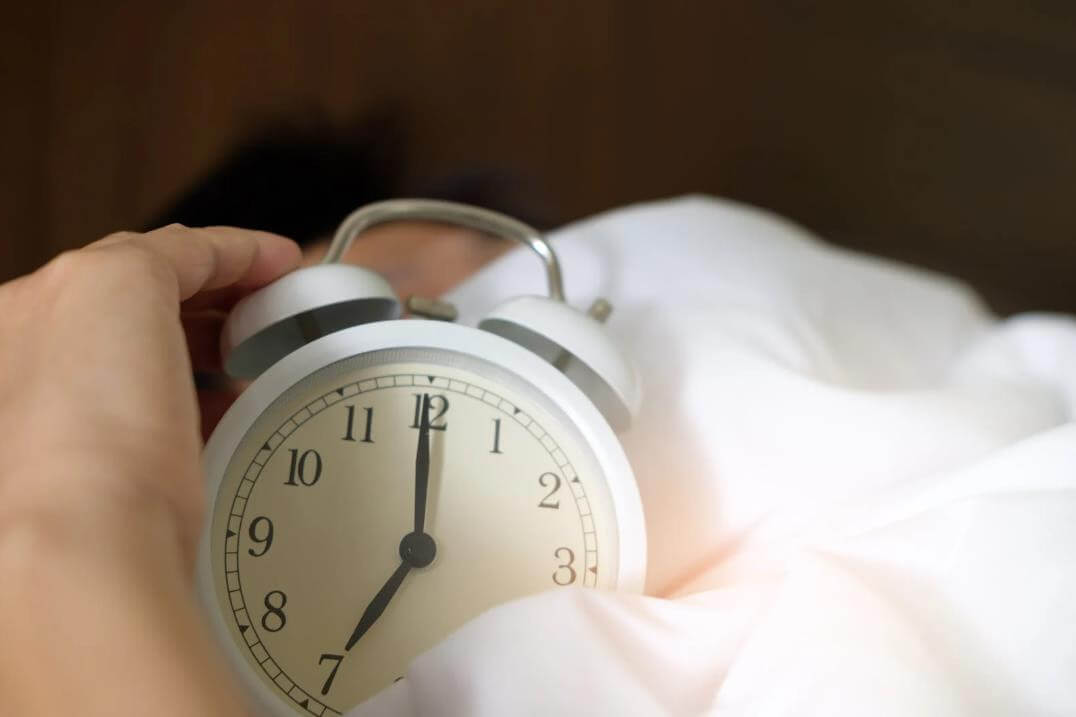Sleep and weight loss are two topics that everyone is familiar with. Both have a significant impact on our health, mood, and energy levels. While it is commonly believed that adequate rest helps promote weight loss, what does the research say? What is the connection between sleep and weight loss? And when is the best time to sleep to reap these benefits?
We’ll examine how important good quality sleep is for optimal health and sustainable weight loss. We’ll look at what factors affect sleep quality, as well as how much sleep we need to properly regulate hormones and boost metabolism. We’ll also explore strategies on how to get better quality deeper sleep so you can wake up refreshed and ready to start your day with boundless energy!
What’s the Link Between Sleep and Metabolism?

Poor quality sleep has been linked to a slower metabolism, which means it can take your body longer to burn
calories
and break down food for energy. People who slept fewer than five hours per night had significant increases in ghrelin (a hormone that stimulates appetite) as well as decreases in leptin (a hormone that suppresses appetite). This combination likely contributes to increased hunger and cravings for unhealthy foods leading to weight gain.
Sleeplessness affects hormones related to blood sugar regulation such as insulin and glucagon. Poor quality sleep
negatively
impacts these hormones by making them less efficient at controlling blood sugar levels. Higher glucose can lead to an increase in stored fat, ultimately slowing your metabolism even further.
When you’re getting enough
high-quality restful sleep
, the body’s metabolism works much more efficiently. Sleeping at least 7–8 hours per night helps regulate metabolic processes like fat burning, thereby assisting with weight loss goals over time. So regularly getting enough sleep is critical for managing your weight.
Lack of sleep can lead to a slower metabolism and increased hunger pangs, which in turn can contribute to unhealthy weight gain.
How Does Lack of Sleep Impact Weight?
To understand
why
, it helps to look at how poor-quality sleep affects two hormones in the body – ghrelin and leptin. Ghrelin is a hormone known for stimulating appetite while Leptin suppresses hunger and promotes fullness. Higher hunger combined with feeling alert at late hours causes poor snacking decisions such as high-sugar or high-fat snacks which can lead to weight gain over time.
On the other hand, high-quality restful sleep gives an individual’s metabolism an
advantage
leading to increased fat-burning efficiency which helps with achieving weight loss goals over time. Sleeping 7-8 consecutive hours per 24-hour period balances insulin/glucagon hormones (which regulate blood glucose) reducing stored fat, ultimately helping lose unwanted weight.
You should pay attention not only to how many hours you are sleeping each night but also when you go to bed to maximize your results when it comes to maintaining healthy weights. Going to bed no later than 10 pm optimizes hormone regulation within our bodies aiding in weight loss efforts.
How Much Sleep Do We Need for Weight Loss?

The amount of sleep you need to continually reach your weight loss goals is different for everyone. In general, adults need 7-8 hours of high-quality, restful sleep per 24-hour period to maintain overall health and well-being. However, there are individual factors that need to be examined when determining how much sleep is ideal for specific people. These include age, genetics,
physical activity
levels, and mental health status.
For example, teenagers (ages 10 – 17) need significantly more than 7-8 hours of restful sleep as many experts advocate for up to 10 or 11 hours per night during the school year! Note that physical activity levels among teens can increase their need for additional sleep since they are consistently burning more calories. Moreover, those with mental illnesses such as depression and anxiety may require additional time in bed or more alert awakenings/naps throughout the day compared to those that face no such impediments.
Even small amounts of additional sleep can make a large difference when it comes to weight loss. Individuals who were able to adjust their sleeping patterns from 5.5 hours up to 8 hours overnight experienced an average 9-pound decrease in just 6 weeks! Increasing the amount of time sleeping even by a few hours can have remarkable effects on achieving successful weight loss through improved calorie burn rates and intense hunger suppressions due in part to hormone regulations caused by higher quality rest times.
Adults typically need around seven or eight hours of quality restful sleep each night and this number may slightly increase depending on age, genetics, or mental & physical health issues faced daily in addition individuals should aim to go to bed before 10 PM every evening if possible. Getting
adequate
high-quality rest is an important part of staying healthy and supporting long-term weight management goals.
What’s the Best Time to Sleep for Weight Management?
Setting a consistent bedtime of before 10 pm daily can support weight management goals. This is because when we go to bed earlier, our body has more time to rest and increase metabolism while sleeping. Topping it off with 8 hours of continuous sleep without disruption gives hormones such as Ghrelin and Leptin enough time to balance out, contributing to efficiently
burning fat
at night.
Bedtimes should also be consistent from day to day even on weekends or holidays. According to the
National Sleep Foundation
, maintaining a regular sleep cycle over time helps ensure optimal alertness during using waking hours which reduces daytime snacking and undesirable eating habits. Power napping can also be beneficial in controlling sleepless cravings but should not exceed 30 minutes per session since it can throw off your internal sleep schedule, negatively impacting your overall health and weight management goals.
Going to bed earlier than 10 pm gives an individual’s metabolism an
advantage
ultimately leading to successful weight loss over time as long as the sleeping routine is consistently adhered to! People who get less than 7 hours of rest at night are significantly more likely to develop obesity compared with those who achieve better quality rest & longer sleep cycles regularly throughout the week.
To review, deciding on a consistent bedtime before 10 pm each night may support successful weight management goals over time for individuals striving towards healthier lifestyles! Regular maintenance of high-quality restful sleep in combination with self-discipline regarding appropriate snacking & physical activity will help facilitate successful weight loss over extended lengths of use resulting in healthier fitness & well-being!
How Can We Improve Our Sleep for Better Weight Management?

While just getting enough sleep is important for weight management, quality of sleep is also key. Here are some tips to ensure you’re getting quality restful sleep:
-
Establish a regular sleeping schedule
Set an optimal bedtime that’s based on your body’s natural needs and stick to it. Try to go to bed and wake up around the same time every day.
-
Avoid stimulants
Skip out on caffeine after 2 pm and cut back on sugary foods since they can make it difficult to fall asleep at night. You should also avoid alcohol late in the evening as it has been shown to disrupt deep sleep patterns (REM cycles).
-
Stick to a relaxation routine
Create calming rituals that you do before bed such as taking a warm bath or shower, reading, listening to music, or meditating. As always, reducing blue/screen light exposure before bed can help decrease stimulation from electronics making it easier (and faster!) for you to drift off into slumberland when it lights out!
-
Find the best mattress for you
No two bodies are alike so finding the right mattress for your individual needs is key for ultimate comfort & quality restful sleep each night! Make sure that your mattress & pillows provide adequate support along with ample cushioning resulting in accurate spine layout & full-body saturation during REM cycles allowing endocrine glands to control hormone regulation extra time needed each night optimally aiding in weight loss efforts overtime!
Getting good quality restful sleep is essential for successful weight management and health maintenance over time! Establishing regular sleeping patterns, avoiding stimulants late in the evening, sticking with relaxation rituals before retiring, and choosing a supportive mattress tailored towards personal physical needs all contribute positively towards achieving these goals toward healthier living!
Key Takeaways
Getting high-quality restful sleep each night is critical for staying healthy and helping you reach your long-term weight management goals. Establishing regular sleeping patterns combined with avoiding stimulants late in the evening as well as indulging in relaxation rituals before retiring along with procuring optimal mattress material suited towards an individual’s physical need ensures endocrine glands controlling hormonal balance remain regulated over extended lengths of use resulting in healthier fitness & daily well-being!

 By myulikeadmin
By myulikeadmin



